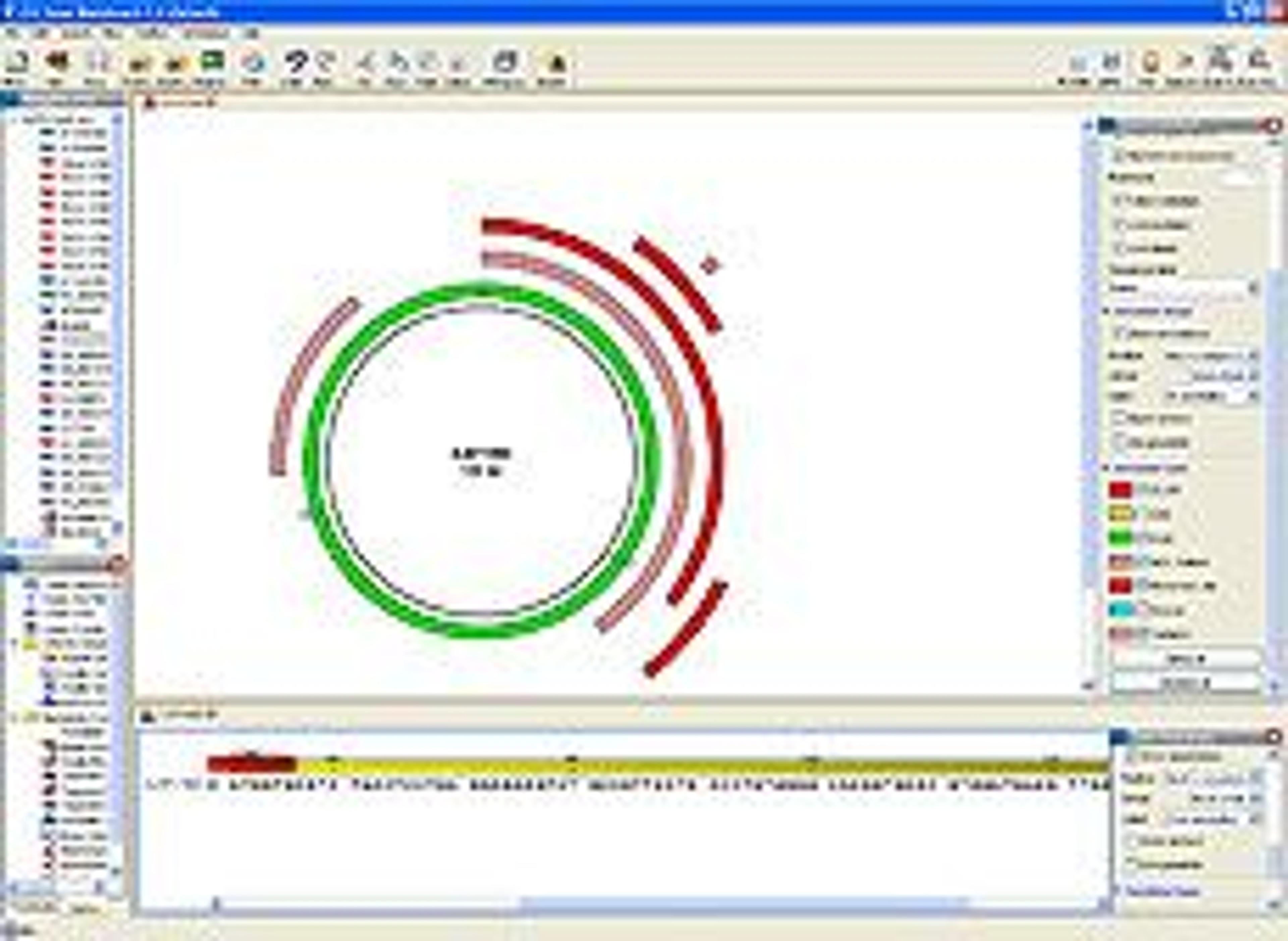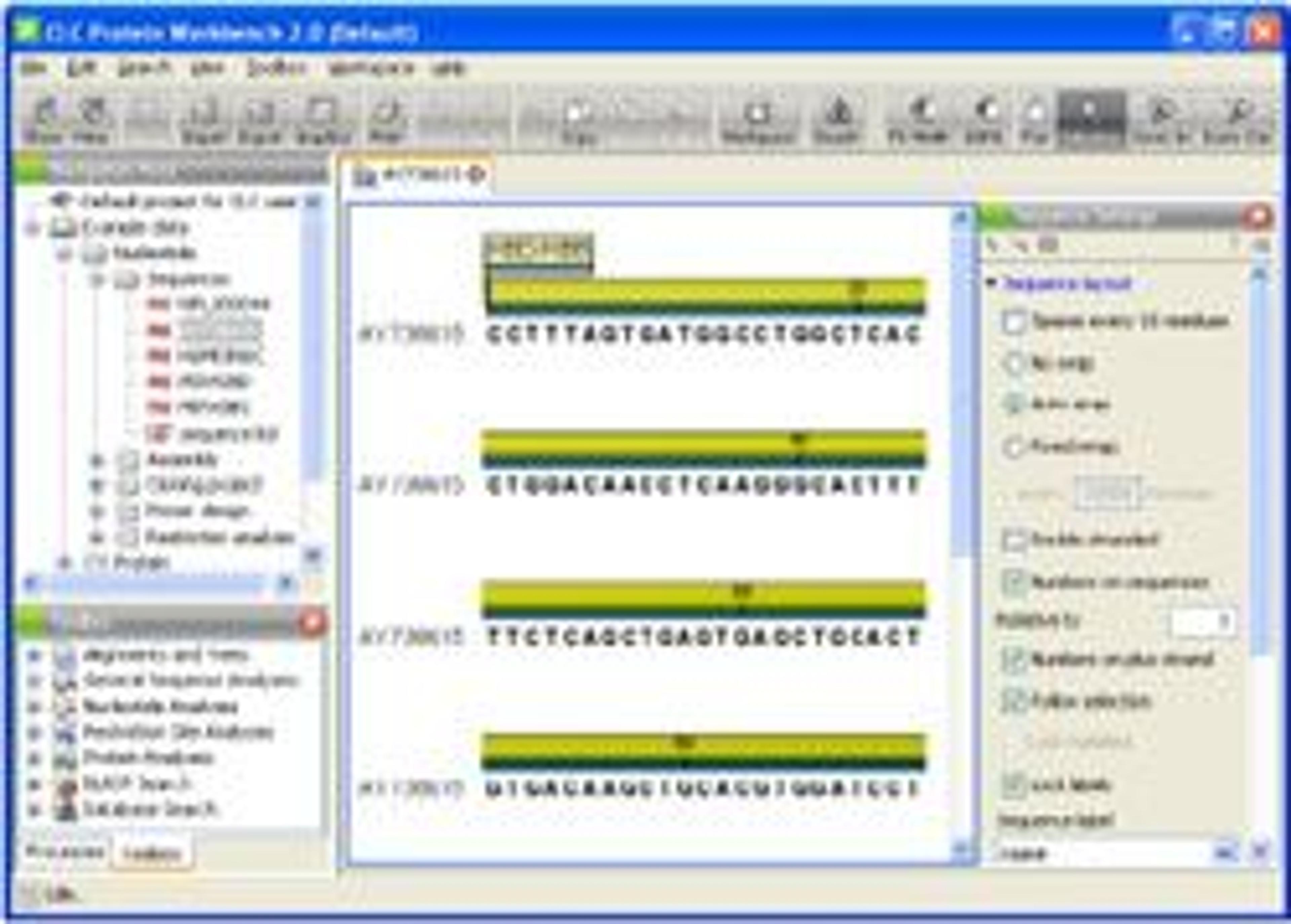CLC bio presents the World’s first fully customizable bioinformatics solution
20 Dec 2006After two years of intensive product development, CLC bio today announced the release of their Software Developer Kit (SDK), called CLC Developer Kit, which will be a free add-on to all CLC bio’s bioinformatics software products.
The CLC Developer Kit will enable the more than 26,000 worldwide users of CLC bio’s software to customize their bioinformatics workbenches to their specific needs. Users can customize their software on two levels:
Customization through use of downloadable software modules (plug-ins) developed by third parties
Customization through users’ own plug-ins
Plug-ins developed by third parties
With the SDK, a large number of specialized plug-ins will be developed and made available for download for users of CLC bio’s software. Some will be developed by CLC bio while others by freelance developers or by larger organizations - for example Beijing Genomics Institute.
Songgang Li, Head of Bioinformatics Department at Beijing Genomics Institute states: “Our large scale genome research center in Beijing has developed a number of leading bioinformatics algorithms that have so far been web-based tools. With the fantastic CLC Developer Kit, we will be able to integrate many of them into the World’s most advanced desktop bioinformatics applications, followed by distribution on CLC bio’s website and through CLC bio’s Global sales network. We’re thrilled by the potential business opportunities that this adaptable product will provide us with.”
Among other plug-ins, BGI plans to integrate the following tools to CLC bio’s platform: Ka/Ks for computation of non-synonymous and synonymous substitution rates (Ka and Ks) among protein-coding sequences, BGF: Beijing Gene Finder, and ReAS for DNA repeat analysis.
Plug-ins developed by the user’s own organisation
With CLC bio’s SDK, users can - themselves or with the assistance of CLC bio’s consultants expand their software with numerous modules of their own choice and design. Examples are integration with the organization’s local or even proprietary databases, integrating with proprietary bioinformatics algorithms, and design of modules supporting individual workflows in the organization.
In this way, large amounts of time, much manual work, and costly resources can be reduced dramatically. Another important aspect is significantly reducing the risk of errors through automated workflows.
Plug-ins are programmed in Java, and it is very easy to integrate modules programmed in other languages like C/C++ and Python.
To learn more or sign up as a user of the CLC Developer Kit, visit www.clcdeveloper.com
Available for download
As from today, the following plug-ins, developed by CLC bio, are available free of charge on www.clcbio.com/plug-ins:
- Five different alignments that are fully integrated with CLC bio’s graphical framework:
ClustalW, K-Align, MUSCLE, MAFFT, and T-Coffee - Automatic extracting of user-defined annotations from one or more DNA or protein
sequences for further graphical or textual analysis. - A special type of file navigator to supplement the one that is already in the programs
- A plug-in that allows book-marking of files inside the bioinformatics application,
An advanced platform as the base for customization
CLC bio’s software includes advanced and integrated DNA, RNA, and protein sequence analysis. One product is CLC Gene Workbench which notably includes advanced primer design, assembly of DNA sequencing data, and in silico molecular cloning. CLC Protein Workbench includes protein structure prediction, protein function prediction, and much more.



